11 Ways Swimming Can Make You Sick

When you swim, you can come across some nasty bacteria, viruses, and chemicals. Oceans, rivers, lakes, and ponds can get things from animals, sewage spills, runoff from rainstorms, or other swimmers. And while chlorine kills most of the germs in places like pools, hot tubs, and splash fountains, it doesn’t work instantly.
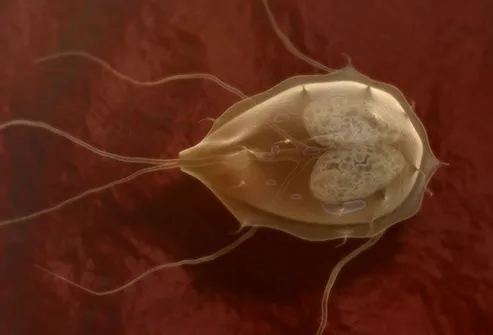
If you catch something while you’re swimming -- wherever you might be -- you’re most likely to have these kinds of issues. The culprit is often a parasite like cryptosporidium (crypto for short) or girardia. You also could come into contact with norovirus or bacteria like E. coli or shigella. To protect yourself, don't swallow water when you swim. To protect everyone else, stay on the sidelines if you have diarrhea.

The official name for this is otitis externa. It’s a common infection you can get when you spend a lot of time in any kind of water. Your skin breaks down more easily when it’s moist, and bacteria can move in. Over-the-counter drops can help prevent it. If you have it, you’ll need to see a doctor for antibiotics.
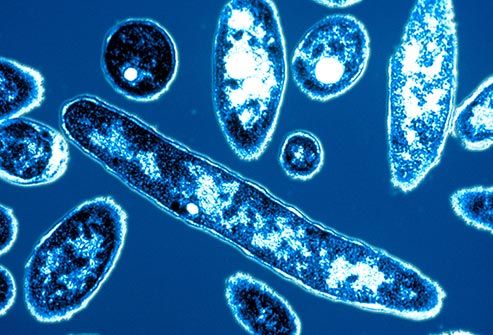
You can get this type of pneumonia, also called legionellosis, if you breathe in a bacteria called legionella. The germ can thrive in a hot tub that isn’t clean enough, and you can breathe it in through mist or steam. It’s one of the most common waterborne illnesses in the U.S.
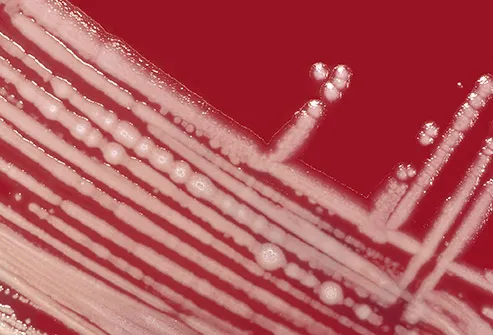
A long soak in a hot tub can give you itchy, bumpy, red spots. The troublemaker is often a germ called Pseudomonas aeruginosa. Spas are harder to keep clean than pools because high temperatures break down chemicals like chlorine faster. That makes a friendlier environment for bacteria. Always shower with soap right away after you’ve been in one, and wash your swimsuit, too.
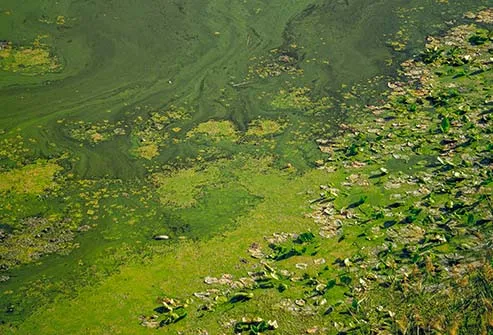
Sometimes these simple plants that live in oceans and freshwater can grow out of control and make dangerous poisons. That’s called a harmful algal bloom (HAB), and every U.S. state with a coastline has had them. One type, known as cyanobacteria, can give you diarrhea and rashes and cause problems with your lungs. Don’t swim in areas that look scummy or foamy, and pay attention to posted warnings about HABs.
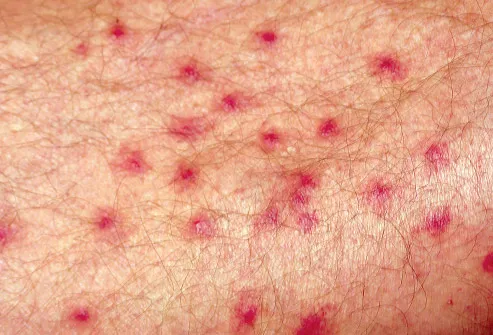
You can get this rash, also called cercarial dermatitis, in fresh or saltwater. It's a reaction to a tiny parasite that burrows into your skin. It starts with infected snails, and you're more likely to run into them in shallow areas near the shore. The best way to avoid it is to stay away from marshy places where snails live. And always towel off or shower when you’re done swimming.
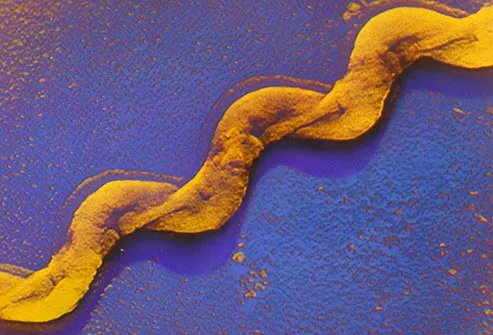
You can come across the bacteria that cause this illness in lakes and rivers -- they get there through the urine of infected animals. The germs go into your body through your eyes, nose, mouth, or a cut. Symptoms include diarrhea, red eyes, headache, fever, and jaundice (yellowish skin or eyes caused by a problem with your liver). It’s more common in warmer climates, and recent heavy rains and flooding make it more likely.

This tiny organism, found in warm freshwater spots like lakes, rivers, and hot springs, is sometimes called the “brain-eating amoeba.” It can get in your nose when you swim in contaminated water. Once it’s in your body, it destroys tissue and is almost always fatal. Infections are very rare in the U.S. -- there are only about three each year. To cut your risk, hold your nose closed, use nose clips, or keep your head above water.
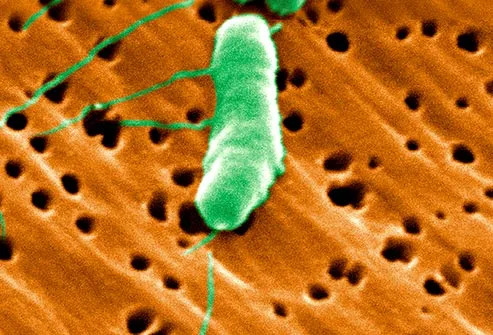
If you swim in the ocean when you have a cut, scrape, or recent tattoo, certain organisms that live in warm coastal waters can get in your wound and cause an infection. One type, vibrio vulnificus, is sometimes called “flesh-eating bacteria.” It’s very rare, but it can cause skin ulcers and lead to serious problems, especially if your immune system is weak.
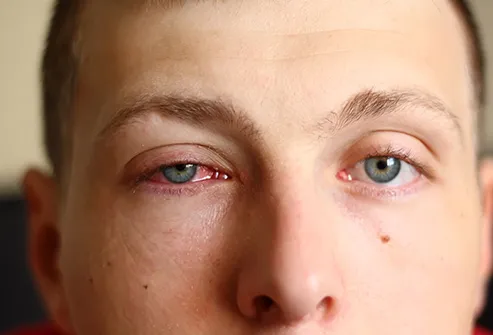
When it’s caused by germs, it’s very contagious, and you can get it by swimming in the same pool as someone who has it. This condition, also known as pinkeye, makes your eyes swell, turn red, and leak a watery yellow fluid. It can be caused by chemicals, too, and the chlorine in pools can sometimes lead to a mild version.
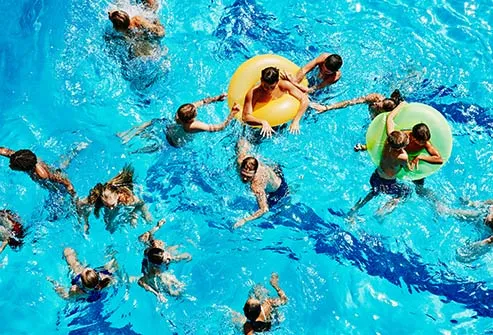
If you have red eyes, an irritated throat, or a cough after swimming in a pool, it's probably caused by something called chloramines. These form when a chemical used to disinfect the pool mixes with things people bring into it: urine, feces, sweat, and dead skin. Showering before you jump in (and not using the water as a toilet) can help prevent them.

Some general rules can help protect you from waterborne diseases:
o Stay out of the water if you have diarrhea.
o Don’t swim with an open wound unless you can cover it with a waterproof bandage.
o Shower before and after swimming.
o Stay out of water that has a strong chemical odor, is discolored, or looks cloudy or scummy.